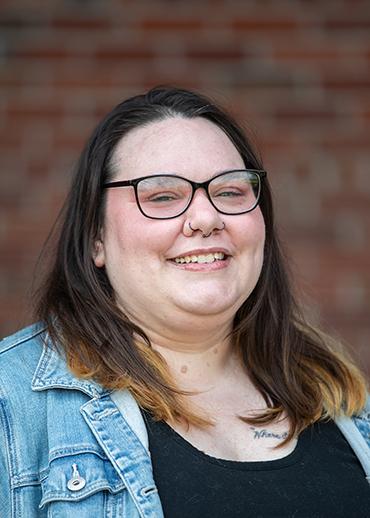| Name | Contact Information |
|---|---|
Thomas N. BakerAssociate Director Lougheed Center for Applied Learning and Professor, History Student Fellowship Program, Presidential Scholars, Honors Program, Lougheed Center for Applied Learning, Student Research & Creativity, History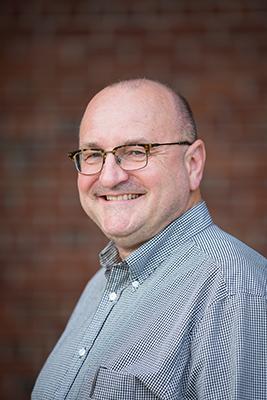
Thomas N. BakerAssociate Director Lougheed Center for Applied Learning and Professor, HistoryLougheed Learning Commons 107D
bakertn@potsdam.edu
View CVAfter graduating in 1985 with a B.A. in history from Trinity College, in Hartford, Connecticut, Thomas N. Baker went on to teach history at the secondary-school level for a year before entering graduate school in pursuit of a doctorate in U.S. history. A decade or so later, armed with an M.A. and Ph.D. from the University of North Carolina at Chapel Hill, he was employed teaching courses in history and American studies at Elon College, North Carolina State University, and the University of North Carolina at Chapel Hill. His last appointment before coming to SUNY-Potsdam was at Centre College, in Danville, Kentucky, where he taught for 4 years as a visiting assistant professor of history. Baker's scholarly interests are varied, ranging from nineteenth-century U.S. cultural and political history to the history of the African Diaspora, with forays into the histories of twentieth century film and popular music. At SUNY-Potsdam he teaches upper-level courses on New York State history, Victorian culture, the American Civil War, race and U.S. film, and Black Diaspora (a history of the Atlantic Slave Trade). Baker's first book, Sentiment & Celebrity: Nathaniel Parker Willis and the Trials of Literary Fame (Oxford University Press, 1999) plumbed the nineteenth-century origins of America's fascination with the culture of celebrity. His latest book-length project is a study of the political and social world of American deism, circa 1800, as exemplified in a secret society of deists ("The Brethren of the Druids") centered in Newburgh, New York. He has published articles on Lyman Beecher and historical memory, "A Slave" writing to Thomas Jefferson, and Aaron Burr's role in the contested presidential election of 1800. At home, Dr. Baker enjoys spending time with his wife, Sarah, who is a school psychologist, and his son, William. As music fans and sometime string musicians, the Bakers love Potsdam's vibrant music culture. They are also keen on hiking the Adirondacks, although they could do without the black flies. More Info |
|
Geoffrey W ClarkProfessor and NEH Director National Endowment for the Humanities (NEH) Faculty Development Program, History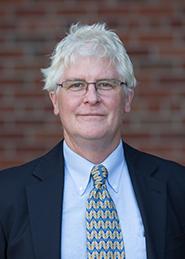
Geoffrey W ClarkProfessor and NEH DirectorSatterlee Hall 330
clarkgw@potsdam.edu
View CVMore Info |
|
Axel S Fair-SchulzAssociate Professor History
Axel S Fair-SchulzAssociate ProfessorSatterlee Hall 306
fairsca@potsdam.edu
View CVAxel Fair-Schulz was born on the other side of the Iron Curtain in the once eminent silver-mining city of Freiberg and grew up on the Baltic Coast, both in the former Communist German Democratic Republic. He was very fortunate to travel to various Eastern bloc countries while growing up, and his desire to travel and pursue opportunities elsewhere led him to the United States and then to Canada, where he met his wife Laura, an artist. After graduating with a BA in History and Anthropology from Brigham Young University, he went on to get his MA in European History and wrote his thesis about the East German dissident scientist Robert Havemann, a chemist and critical Marxist who was first condemned to death by the Nazi Regime and then persecuted by East Germany's Communist regime. Axel's research interests stem from his own background, growing up with an acute awareness in the dissident influences in East Germany. Axel went on to pursue a Ph.D. in German History at SUNY Buffalo, with the renowned historiographer Georg Iggers, focusing on the social and cultural foundations of intellectual and political history. He wrote his dissertation on three case studies of reform-minded Marxists in the GDR. Among the highlights of his research was the opportunity to meet with and interview several key figures of 20th-century European history. Before coming to SUNY Potsdam, Axel both taught and presented his research at various colleges and Universities in Canada, Germany, and the United States. Among his publications are numerous book reviews on East Germany, and he has contributed several book chapters on German refugee intellectuals and historians. He has recently co-edited German Refugee Intellectuals After 1933: New Approaches with Mario Kessler. This volume explores the motivations and experiences of German intellectuals who fled the Nazi regime, often settling in the US and Great Britain. Due out in 2007 is a biography entitled A "Peculiar Believer:" Robert Havemann. A Twentieth-Century German Marxist Between Dogmatism and Dissent. In addition, Axel is writing a biography of the eminent East German economist, historian, and public intellectual Jürgen Kuczynski A Marxist Bildungsbürger in the SED State.) He also writes journalistic pieces in both German and Canadian publications. Axel loves this area with its proximity to Canada and the Adirondacks, and looks forward to teaching courses at Potsdam ranging from Modern Germany, History and the Holocaust, Espionage and the Cold War, Ideas and Culture in Modern Europe, as well as Russian and Soviet Society. Axel and Laura have two gorgeous sons, Jozhi (pronounced Yo-Shee and short for Jochanaan Yo-ha-nan, as named for a character in a Stefan Heym novel) and the gloriously red-curly-bobbed Alexej (Alek-say). Several cats and a dog fill out this lively household. More Info |
|
Libbie J. FreedAssociate Professor and Dept. Chair History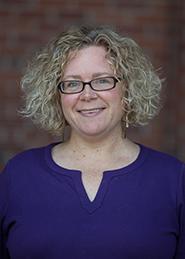
Libbie J. FreedAssociate Professor and Dept. ChairSatterlee Hall 316-2
freedlj@potsdam.edu
View CVSatterlee Hall 321-B More Info |
|
Shiho ImaiAssociate Professor and Interim Dean, School of Arts & Sciences History, School of Arts & Sciences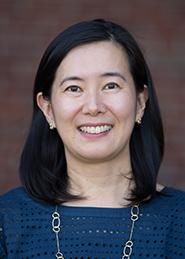
Shiho ImaiAssociate Professor and Interim Dean, School of Arts & SciencesSatterlee Hall 321A
imais@potsdam.edu
View CVCarson Hall 210 I was born in Tokyo, Japan, and moved to Bronxville, New York when I was six years old. I recently discovered that my grade school teacher graduated from Potsdam in 1969! When I was in fifth grade, my parents suddenly announced that we were going back to Japan. I still remember that last day of school. My dream of returning to the U.S. was finally realized during my junior year of college at Sophia University (上智大学), as an exchange student to Pomona College. After graduating from Sophia University, I worked for Dentsu Inc., an advertising agency in Tokyo. Here I learned the basics of marketing, copywriting, and sales promotion among other things. Little did I know that this experience would become useful in studying history. I received my M.A. from Tufts University and Ph.D. from Brown University. My dissertation, "Creating the Nisei Market: Japanese American Consumer Culture in Honolulu, 1920-1941," explores the relationship between advertising in the immigrant press and Japanese American identity. At Potsdam I teach Premodern and Modern Japanese History, U.S. History Since 1877, and specialized seminars. One of my seminars, "Imagining Asia: Intercultural Encounters Between the U.S. and Asia," examines the role of Asia in shaping American culture. I also teach Japanese women's history from ancient times to the present. In my free time, I like to travel with my husband, Takashi. We try to visit the national parks every summer. More Info |
|
Mollie A MayetteAdministrative Assistant 1 Sociology & Criminal Justice, Theatre and Dance, English, Politics, Interdisciplinary Studies, Philosophy, School of Arts & Sciences, Psychology, Women's and Gender Studies Program, History, Art |
|
Sheila M. McIntyreProfessor History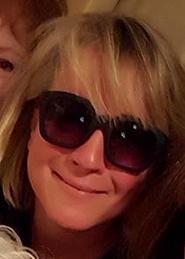
Sheila M. McIntyreProfessorSatterlee Hall 334
mcintysm@potsdam.edu
View CVUnlike any students who have ever taken my introductory survey to American history, I became a historian partly because I was inspired by my US History professor, A.R. Riggs. While my father's deep love for history was infectious and I come from a long line of storytellers, that first-year class sealed my fate. Fleeing my hometown of Boston, drenched in early American history, for Montreal, I managed to become an American citizen majoring in American history in Quebec after a mere two weeks in my initial major, psychology. After a B.A. in History from McGill University in 1988, I began graduate school in Edinburgh, Scotland, but the haggis smell from the butcher below my apartment forced me back across the Atlantic. I received my PhD from Boston University in 1996, taught at Boston University and Harvard University for two years as a visiting professor, and then began a fellowship under the Social Sciences and Humanities Research Council of Canada. Since coming to SUNY Potsdam in 2001, I have taught courses in Medical History, Historical methodology, Early America, Revolutionary America, Witchcraft, and Early American Indigenous History. I have completed two books: Reading Roger Williams: Rogue Puritans, Indigenous Nations, and the Founding of America (2024) and The Correspondence of John Cotton, Jr, 1640-1699 (2009). I have also published articles about early American letters, newspapers, funeral gloves, penmanship, and letter-writing manuals. My ongoing book project -- The Culture of Correspondence: Letter-writing in Early New England -- seeks to understand how letters function within culture, and explores the intersections among oral, written, and print forms of communication. More Info |
|
Kevin D. SmithAssociate Professor History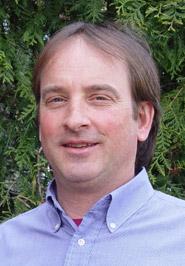
Kevin D. SmithAssociate ProfessorSatterlee Hall 310B
smithkd@potsdam.edu
View CVWhile I took the scenic route through higher education, my love for the study of history dates from an early age. I grew up in Saratoga Springs, NY, the younger son of two politically-active college professors. My parents encouraged my brother and me to pay attention to the world around us and participate in dinner table conversations about what it all meant. It quickly became obvious that making sense of the world required an understanding of history. My parents also encouraged us to pursue other interests, which for me meant bicycle racing and the rock and roll guitar. I began to study history in earnest at Middlebury College, where I focused on U. S. foreign relations. After graduation, though, I spent five years bike racing full-time and working for a bicycle manufacturer that had sponsored my racing career. But after a few years in business, I began to miss the intellectual stimulation of academic life and enrolled in graduate school to begin work on a Ph.D. in history. I began my graduate career at the University of Maryland-College Park, where I discovered Latin American history and developed an interest in the connection between domestic affairs and foreign relations, particularly during the Cold War. I also ran off with a rock and roll band. I managed to finish my M.A. at Maryland, but my pursuit of a Ph.D. was delayed for a few more years. After I figured out how difficult it is to make a decent living playing rock and roll music, I enrolled at the University of Wisconsin-Madison to complete my degree. There, I broadened my work in Latin American history to include the Caribbean, particularly the British West Indies, and I wrote a dissertation that explores the connection of the Cold War and the Civil Rights Movement through the perspective of religion. I am now working on turning my dissertation into a book. At SUNY Potsdam I teach a variety of upper-level courses, including: the U.S. since 1945; the History of U.S. Foreign Relations from 1763 to 1901 and from 1890 to the Present; 20th-Century Latin American History; and the history of Caribbean colonialism. In the future, I plan to offer courses in Race and Class in U.S. history and African American history. I am also the advisor for the Student History Association. In my leisure time, I still ride my bicycle, most enjoyably in the company of my wife, Lynn Hall, who teaches in the Teacher Education Department at SUNY Potsdam. We also take full advantage of the outdoor activities available in the North Country, including hiking, canoeing, camping, and swimming, not necessarily in that order. I also continue to play music, sometimes solo but most often with our new friends in the Potsdam area. More Info |
|
Steven M. StannishAssociate Professor History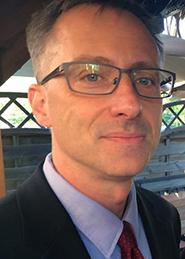
Steven M. StannishAssociate ProfessorSatterlee Hall 310A
stannism@potsdam.edu
View CVI began studying history at the University of Nebraska in 1986. Originally I was interested in modern Germany and Russia, but eventually I changed my focus to the ancient Middle East. I wrote my senior paper on the campaign of the pharaoh Sheshonq I against Judah and Israel at the end of the tenth century B.C. Also at Nebraska, I studied modern philosophy and eastern religion. In 1993, I enrolled in the graduate program in history at Miami University. I wrote my Ph.D. dissertation on the \'Amarna Revolution, the religious reformation of the pharaoh Akhenaten in the fourteenth century B.C. While earning my doctorate at Miami, I became especially interested in the ideas of Sigmund Freud and their application to ancient history. Currently, I am continuing my research on the \'Amarna Period and working on a psychological portrait of Saint Augustine. My long-term project is a monograph on the dream book from Deir el-Medina in Egypt. In my free time, I enjoy European literature, modern art, and basketball. More Info |
|
Gaylynn J. WelchLecturer History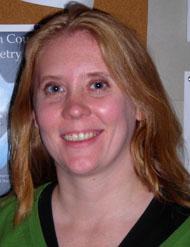
Gaylynn J. WelchLecturerSatterlee Hall 323
welchgj@potsdam.edu
View CVI received my master's degree from the University of Nebraska at Kearney in 1998, and in 2001 I moved east to continue my graduate work at Binghamton University. Beginning in the summer of 2003, I have enjoyed teaching U.S. survey and New York State history courses at SUNY Potsdam. My main area of interest is U.S. women's history. While working on my master's degree, I discovered that Nebraska had an interesting and active suffrage movement, and devoted my thesis to the topic. As my dissertation title "The Woman Suffrage Movement in the United States: National and Local Perspectives, 1870-1890" suggests, the scope of my current project is much broader. I use local and state suffrage movements, including the Nebraska campaign of 1882, to compare two rival "national" organizations: the American Woman Suffrage Association and the National Woman Suffrage Association. When I am not teaching or writing, I enjoy spending time with friends. More Info |

